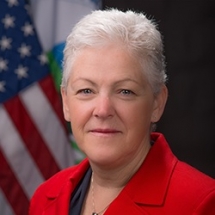White House Author

Peter L. Levin
Senior Advisor to the Secretary and Chief Technology Officer of the Department of Veterans Affairs
Peter L. Levin was appointed Senior Advisor to the Secretary and Chief Technology Officer of the Department of Veterans Affairs in May 2009.
He leads or co-leads the development of the Blue Button personal health record, the open source custodial agent for health record modernization, the Fast Track electronic claims processing system, the National Resource Directory for veteran employment, and the homeless services web application “Project REACH”, a contest run by the VA Innovation Initiative. Peter led the implementation of VA’s social media outreach and their employee innovation competitions; he helped launch their suicide prevention chat line and VLER’s first clinical deployment in San Diego. All these programs are part of the Obama Administration’s Open Government initiative, and are all being institutionalized inside the department, the government, and in the case of button-simple access to data, across society.
Prior to joining the Administration, he was an executive director of the successful open source network security company Astaro (acquired by Sophos), the lead investor and board member of the successful design automation company NeoLinear (acquired by Cadence), and co-founding CEO of the successful GPS-based cybersecurity company Zanio (acquired by an undisclosed public company). Peter was a venture partner of the Dusseldorf-based venture capital firm Ventizz Capital Partners, and a general partner of Munich-based Techno Venture Management.
Peter was a National Science Foundation Presidential Young Investigator during the first Bush administration, a Clinton White House Fellow in the Office of Management and Budget, an Alexander von Humboldt Fellow in the Department Mathematical Physics at the Technical University of Darmstadt, and a winner of a NIST Advanced Technology Program award. He is the co-author of more than 50 technical articles ranging from global positioning and cybersecurity to computer simulations and semiconductor test; he holds patents in chip design and GPS-based authentication. Peter’s policy essays have appeared in Foreign Affairs, The Huffington Post, and on the White House blog.
Peter’s career began at Worcester Polytechnic Institute, and he was later appointed research dean for research and graduate studies in the College of Engineering at Boston University. His early teaching and research focused on electromagnetic and acoustic field theory, and he was tenured at both institutions. He is today a consulting professor in the Department of Aeronautics and Astronautics at Stanford University.
Peter studied at Carnegie Mellon University, where he received his B.S., M.S. and Ph.D. in Electrical and Computer Engineering, and he enjoyed post-doctoral training at the Institute for High Voltage Engineering at the Technical University of Munich.



